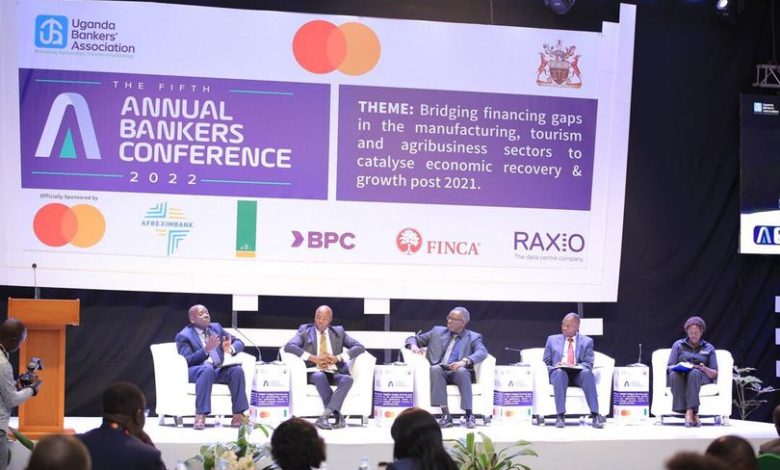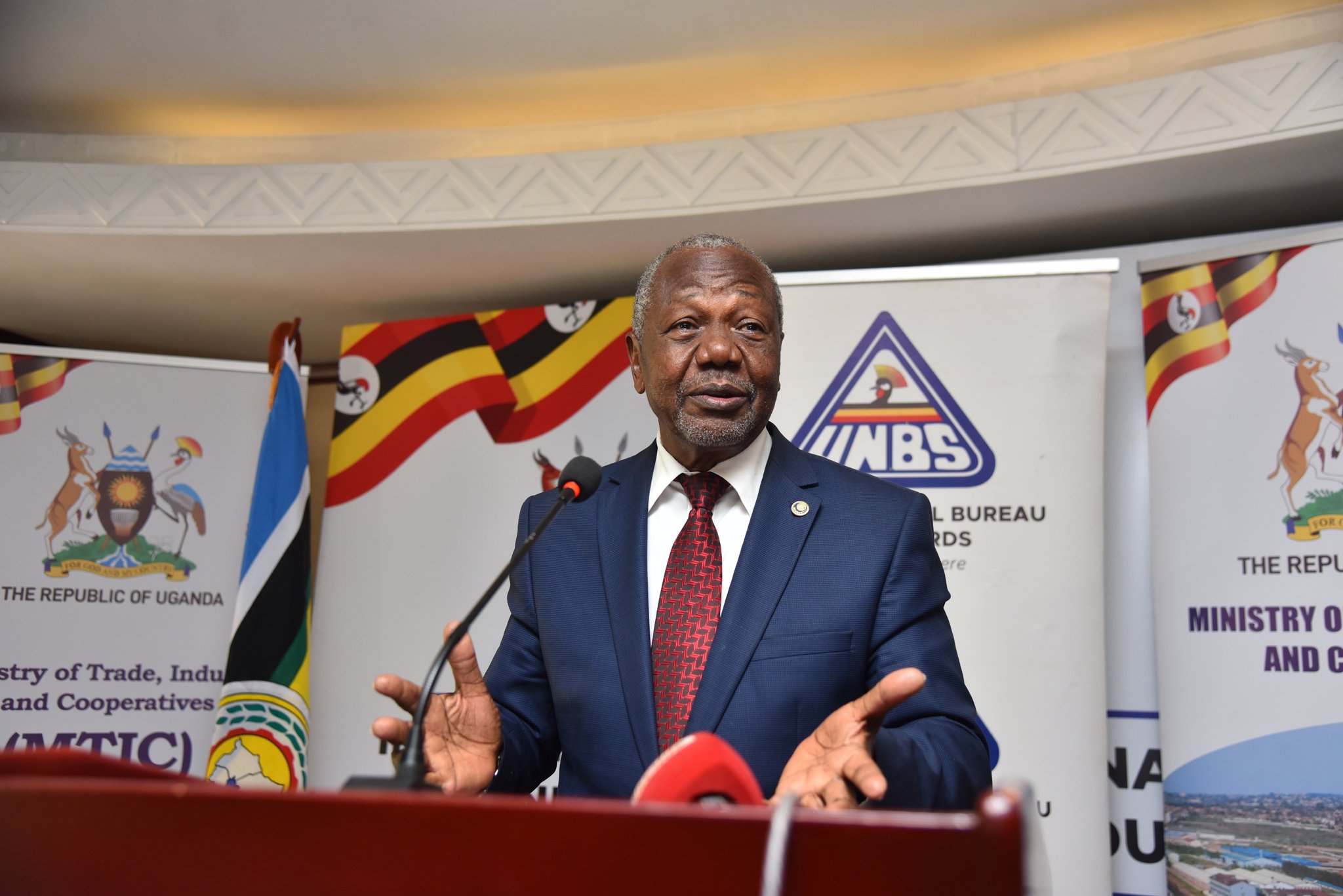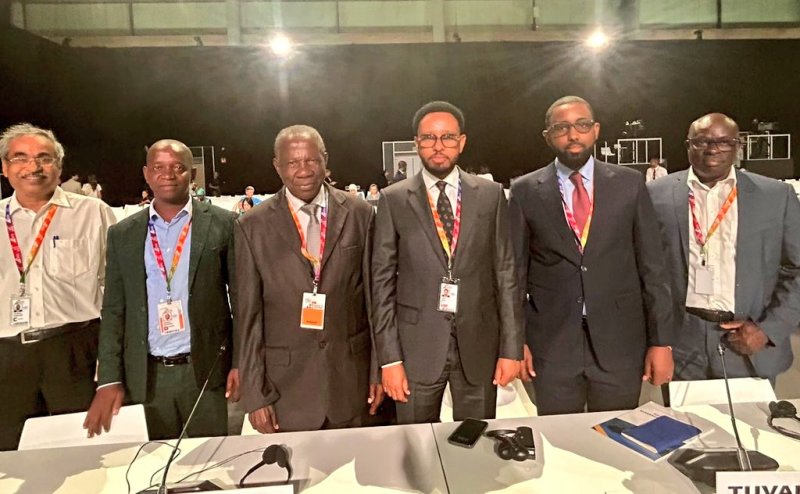Banks Invited To Target Entire Manufacturing Value Chain With Longtime Financing
Dr Hippolyte Fofack, the Chief Economist at the African Export-Import Bank (Afreximbank) explains that over the years, manufacturing has been a reliable sector for welfare improvement and transition out of poverty, and could be a major catalyst for inclusive growth in a region where unemployment rates have been great depression levels for decades.

When you talk to Ugandan manufacturers about the challenges they encounter as they go about their businesses, they will be quick to point out the high cost of doing business exacerbated by expensive electricity, transport costs, taxes and the unavailability of cheap credit.
Manufacturers undertake capital-intensive projects which require a lot of money to implement. This money can barely be met by one’s savings. At this point, the manufacturer will need to externally source for capital to meet his or her investment goals. This is where the banks come in – but banks have been called out for offering expensive loans.
Speaking on day one of the 5th Annual Banker’s Conference currently ongoing at Kampala Serena Hotel, industry players have asked banks to bridge this gap and begin to offer affordable longtime credit that can help manufacturers invest in the entire value chain especially those that are in agribusiness.
The Permanent Secretary of the Ministry of Trade Industry and Cooperatives Uganda Geraldine Ssali in her speech noted that despite the manufacturing & tourism sectors being key drivers of the economy they are the ones that are poorly funded.
This poor funding is happening at a time when Uganda has close to 30 commercial banks regulated by the Bank of Uganda that offer loans to corporate and Small and Medium Enterprises (SMEs) at an average interest rate of about 23%, arguably the highest in the East African region.
On top of the loans being expensive, Ssali says the bureaucracies when applying for funding ‘is just too much. She has asked banks to simplify it and offer digital solutions. “So please bankers, share the services on let’s say a phone so that we can eliminate all the paperwork,” she advised.
For Winnie Lawoko Olwe, the Director of Domestic Investment at Uganda Investment Authority (UIA), there is a need for banks to come up with a portal to appraise SMEs to help understand what stage a particular SME is at.
There’s enough information that can give us traceability and fair judgment, she said. Adding: “One of the key issues we need to look at is formalization; so that we can help SMEs that have potential to formalize access funds and support to grow and thrive,”
Dr Hippolyte Fofack, the Chief Economist at the African Export-Import Bank (Afreximbank) explains that over the years, manufacturing has been a reliable sector for welfare improvement and transition out of poverty, and could be a major catalyst for inclusive growth in a region where unemployment rates have been great depression levels for decades.
Daniel Birungi, the Executive Director of Uganda Manufacturing Association (UMA), wants banks to get down and get their hands dirty when ‘preparing people who are coming to borrow because it is a win-win situation, once SMEs win, banks also win.’
He adds: “For manufacturing to grow, you require financing that is patient enough to pay back in say 10 years but now you get 5 years and if you are a good bargainer, you get 7 years.
On his part, Richard Mubiru, the Group Corporate Affairs Director, Picfare Group of Companies, believes that there is a need to restructure financing for manufacturing in Uganda.
Moses Kaggwa of the Ministry of Finance, Planning and Economic Development explains that the manufacturing sector is the largest consumer of electricity and employs about 1.3 million people and gives the country revenue of about 10% but there is a mismatch between available credit & what the manufacturing sector requires.
“As the government, we have tried to put more money in Uganda Development Bank but the demand exceeds the supply,” says Kagwa.
Economists Francis Kamulegeya notes that banks need to rethink asking for collateral as security for the credit. “Some SMEs have huge contracts worth millions of dollars without the standard collateral that banks require. This is an opportunity for banks to lend as they support SMEs,” says Kamulegeya.
The Deputy Governor of the Bank of Uganda, Michael Atingi-Ego, told the conference that the central bank is doing whatever it takes to control inflation and foster price stability as mandated.
The two-day conference has been convened by Uganda Banker’s Association under the theme “bridging financing gaps in the manufacturing, tourism, and agribusiness sectors for economic recovery and growth post 2021”. It ends tomorrow, 26th, July 2022.







